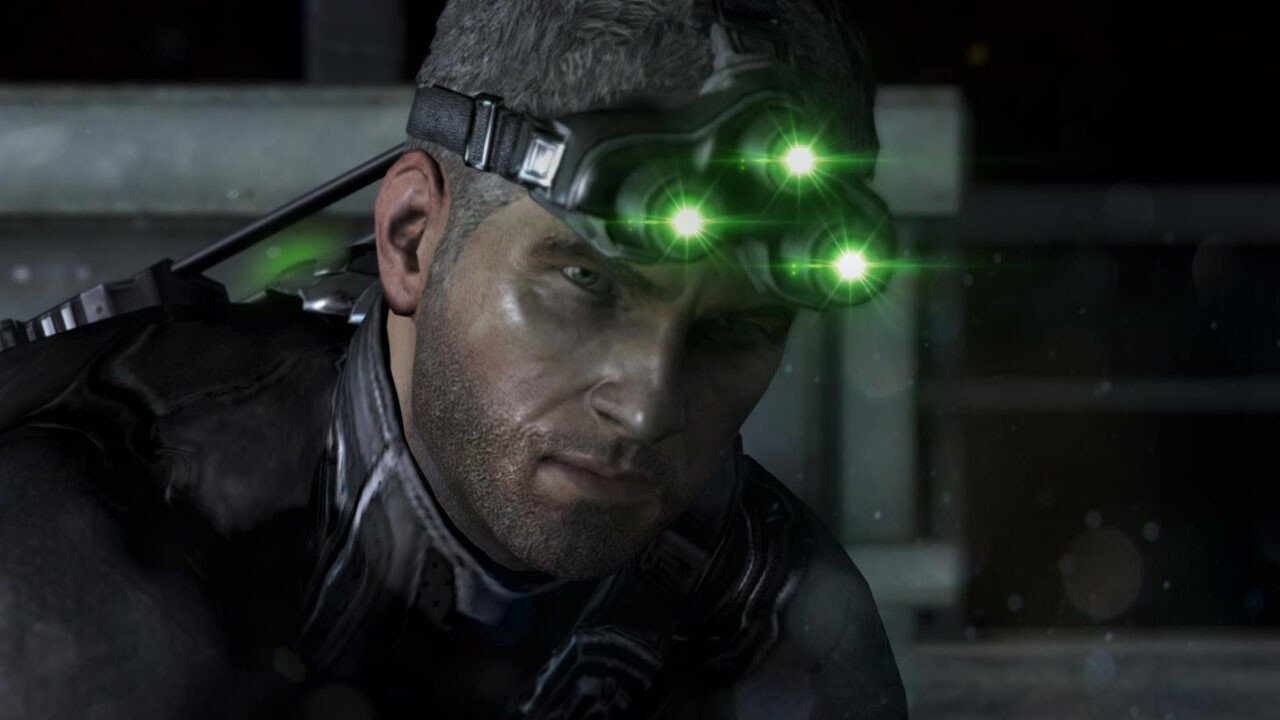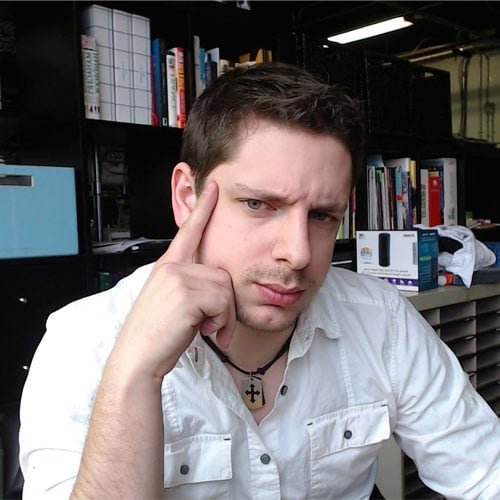Ubisoft is known for some of the biggest franchises on consoles this generation and last. Franchisees such as Assassin’s Creed, Splinter Cell, and Far Cry are household names in millions of homes around the world.Yet the only way they can build such a wide range of titles every year is to utilize the network of studios it has worldwide. Studios such as Ubisoft Paris and Ubisoft Montreal are known across the industry, but a new addition to the lineup, Ubisoft Toronto, may not be as well known.
Nestled in an area of Toronto where industrial Meets Hipster, Ubisoft Toronto is a new exciting place to work. Having already worked on the latest in the Splinter Cell series, they are quickly making a name for the fledgling studio.
With the studio recently turning five and now being involved in the development of Far Cry Primal, I had a chance to sit down and talk with Alexandre Parizeau, producer and now Managing Studio Director. Having worked on titles like Rainbow Six: Vegas and most recently the Splinter Cell: Blacklist, he is no stranger to big projects. Now taking command of one of the biggest game studios in Toronto, Alex was filled with pride and confidence. He seemed ready to take Ubisoft Toronto forward and is excited to work on new projects.
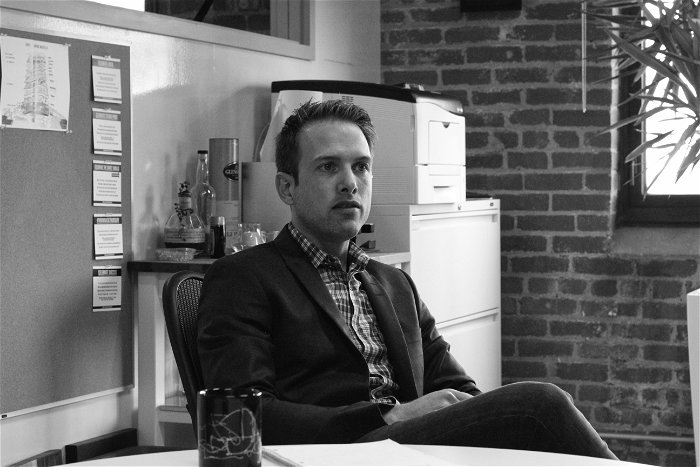
CGMagazine: You recently took control of managing this studio. How has the change been from moving from producer to being the studio head?
Alex: It’s a big change. When you’re working on a game, you’re focused on the game project like you’re delivering or shipping something. So, you’re working as a team and your goal is to ship something tangible, that you can see, and that you can measure. You can assess the quality; you have a milestone. So, the head was always focused on “What do we have now? Where do we want to go? How do we map a plan to get to making an amazing game?” So, moving into managing director position, the biggest shift is that now, instead of working on a specific game, I’m creating a context for these games to be successful. So it’s about making sure that we have the space, the tools, the people, that we have the relationship with the schools, we have the right projects, we’re establishing a relationship with the other studios, building a context that allows everyone to be at their best, to make the best work that they can.
I mean, in a way, it’s not very different to being a producer. I’ve always said that in this industry, it’s all about people. It’s what matters. Building the relationship and allowing people to grow and express themselves is key to making good games. But in this role, even more than when I was on a project, it feels like it’s my responsibility to create a context where people can be at their best.
CGMagazine: How has Ubisoft Toronto worked with other studios beyond Splinter Cell: Blacklist?
Alex: We were partnering with Ubisoft Montreal on both Far Cry and Assassin’s Creed Unity. On Far Cry, we were responsible for the Shangri-La missions, which you may remember it had a really unique art direction. And Assassin’s Creed Unity, we built half the open world and we were responsible for several of the co-op missions. We kind of leveraged our co-op from Blacklist and contributed to Assassin’s Creed that way. We grew a lot, too. I think that’s probably the thing I’m most proud of. We’re 375 at the studio right now.
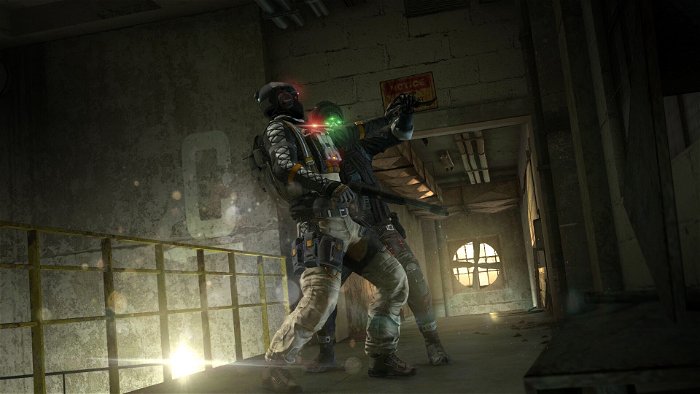
CGMagazine: Do you have a projected size you want to get to?
Alex: We’re still aiming to be 800 developers in the studio by 2020; that’s still our goal.
CGMagazine: And how does that compare to Ubisoft Montreal?
Alex: Montreal has, I’d say, 2700 right now, I think, so Montreal’s big! But we’re at 375 and part of our goal is to have an impact on the industry here in Toronto and in the province, and try to grow the talent and work with schools as well. That’s something I’m really proud of. We have over 100 people at the studio that have started their career in games with us. That’s really amazing and something I’m really proud of. So, we have really great projects now. We have a mix of projects on big Ubisoft brands. We have a few of our own things as well. And, you know, I think the stuff that we did in the last five years has set up the next five as well and that’s kind of what’s really exciting. We have a lot of momentum. We had a really great year last year. We have some of the best people that I’ve ever worked with. We did our five-year celebration last week and the energy; you could feel, like, everyone’s on the same page and wants to make great games. I feel like we’re going to have a really great five years.
In terms of our focus, it’s on blockbuster AAA games. One of our big focuses is on open-world games. Ubisoft has established itself as a leader in open-world. Just last year we shipped four big open-world games. Something that we’re really pushing now is the systemic aspect of open-world games. I think that’s something really exciting. We’ve invested a lot in the previous years into the ability to generate these big open worlds. The next step we’re making right now is investing in the system so that these worlds are more immersive, more engaging, and feel more real. Investing a lot in AI programing and gameplay programing, and Toronto is going to play a key role on that stuff.
CGMagazine: In that tone, do you find that the new generation consoles has given you new tools that this studio has pushed forward with the open-world and systemic aspects?
Alex: I think the more powerful the consoles, the more you’re able to do stuff and dedicate resources to those kinds of things. So yes, but I think it’s also accumulated expertise and knowledge over years. The company has now, over 9000 creative development talent, people who are really smart and have been thinking about those things for years. We’re also at a point where we’re able to leverage that even more. So part of it is resources, part of it is also experience, and also, even academically, it’s something that we’re able to leverage. Two of our members of one of our AI teams here are PhD graduates from big universities. To me, that’s like the holy grail of video games, being thrown into a world and getting to do whatever and the world reacts to whatever you’re doing, and it not as scripted. It’s more dynamic and systemic.
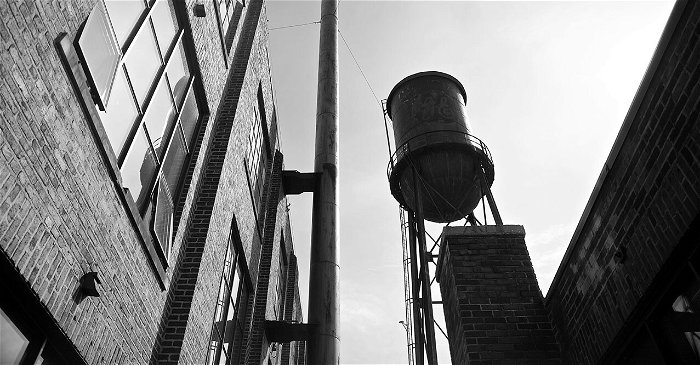
CGMagazine: So what are some things that Ubisoft is doing to help with education, to help with the overall production of the games industry in Toronto that really wasn’t here before you guys came here?
Alex: There’s a mix of stuff that we’re doing. We’re really involved with schools, we have people in our teams who are teachers. We have several people in our team that are part of the advisory board that are helping shape the curriculum for some of the programs. Other things that we’re doing, we’re either participating or organizing events that allow grads to be exposed to what we’re doing so we can see their work. We’re very invested in LevelUp. It’s pretty amazing, actually. The quality of the work that they do is impressive. Something we do that you also may have heard of is Ubi Gallery; we’ve hired four grads from Ubi Gallery this year. We do all sorts of things like that, and we’re as involved as possible with the community so that we can create opportunities for these people, but also help the programs and schools to be as relevant as possible so that when they graduate, they can join our teams and be effective.
CGMagazine: So what have been some challenges of coming to Toronto as a new AAA studio? Was the city fully accepting of you, or was there some adversity from the indie scene?
Alex: Everyone’s been so welcoming, to be honest. To me, being exposed to how passionate people are; like, there are so many insanely successful indie developers in the city, it’s crazy. So many games, the industry is thriving and right from the get-go we were involved and part of those community meetings. I’ve always felt like everyone’s been super open. To me, it was energizing to be part of a different scene that I wasn’t used to before.
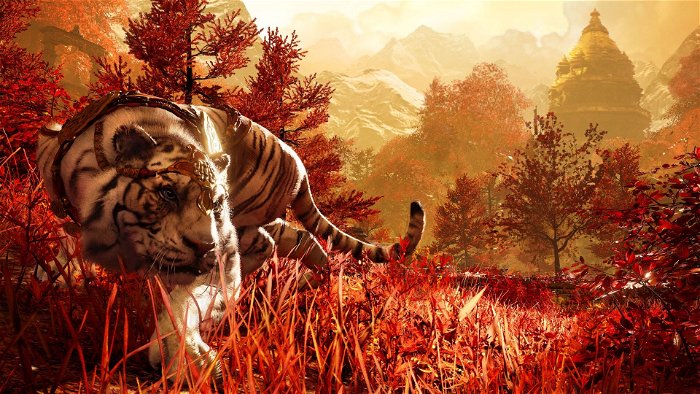
CGMagazine: How does the atmosphere here compare to Ubisoft Montreal?
Alex: The culture of the company is here for sure. I feel like what’s special at Ubisoft Toronto is a lot of people came from all over the industry, and we’ve recruited people from the city. And it’s a very diverse city, too, so we have people with different backgrounds and different perspectives on how to make games. And that to me has been the most fascinating and amazing thing about this place. Ever since the beginning, we were meeting people that have different perspectives and it’s like this mosaic of perspective, and then you’re able to leverage that and come up with a lot of great ideas. And that’s not something that’s easy to leverage, but it was there. In a way, I think that was the mirror of the city, and I think as we continue to grow, that’s something that we need to protect and nurture. Toronto feels different because of that diversity. Also, because while we were growing, we wanted to preserve that and make sure everyone has a voice. Everyone that comes here also understands that part of their work is sharing their knowledge and expertise with people. We have programs like a mentorship program and everyone was registering to the program. We have a culture where people want to make it work, want to share between projects. I’m really proud of that. I feel like it’s the key to our success.
Between and indie project and a big game you want innovation and creativity to shine the same way, but we have a bigger production process and bigger teams, so it is harder to achieve. You have to fight for it. So you want, in bigger teams, for everyone’s individual ideas and creativity to shine through and have an impact on the game. And I feel like we’ve been able to create that here in Toronto and I’m really happy about it.
CGMagazine: As a studio, have you ever wanted to push into the direction where Ubisoft Montreal has Valiant Hearts, Child of Light, the Funhouse stuff.
Alex: To me, it’s about leveraging innovation and the passion that people have. It’s not about typecasting a type of game, it’s about “who do we have here at the studio? What are we interested in making? What are the things that we’re passionate about?” Just recently, for instance, we have Michael Büttner. Michael Büttner has be passionate about animation technology for a long time. We have the motion-capture studio here. He’s been super passionate about this technology called motion field, where you take the data from the motion capture studio and you’re able to use it for the game almost seamlessly. I could probably explain for hours how that works. It’s pretty fascinating but it feels almost magical. So that’s something that we wouldn’t necessarily have invested in or done if he wasn’t part of our team. So you build the studio like it’s a reflection of the people who work there. It’s about trying to give them a voice so what they’re passionate in can surface.
